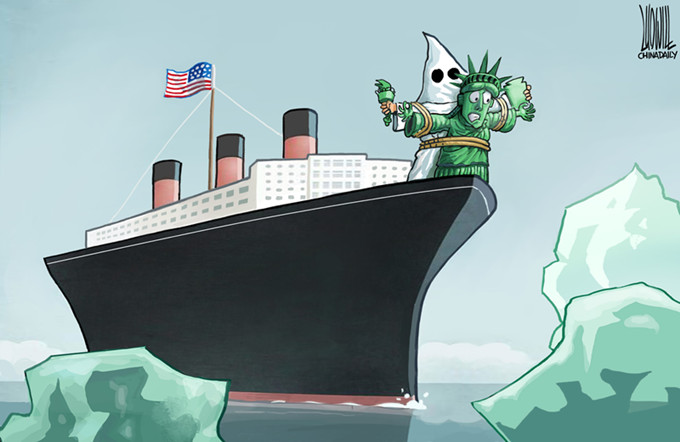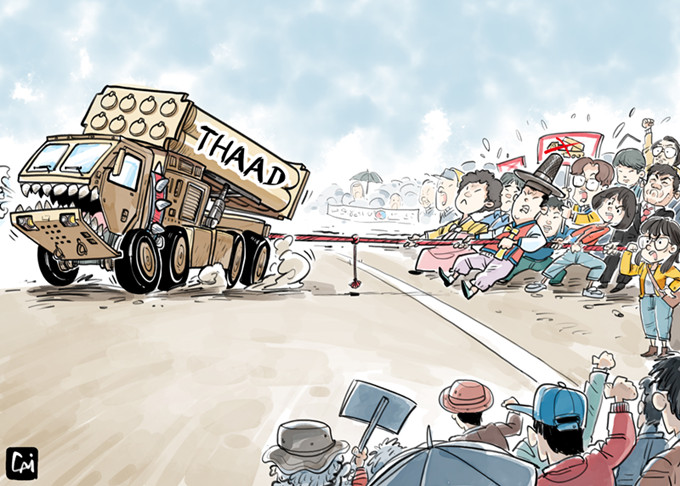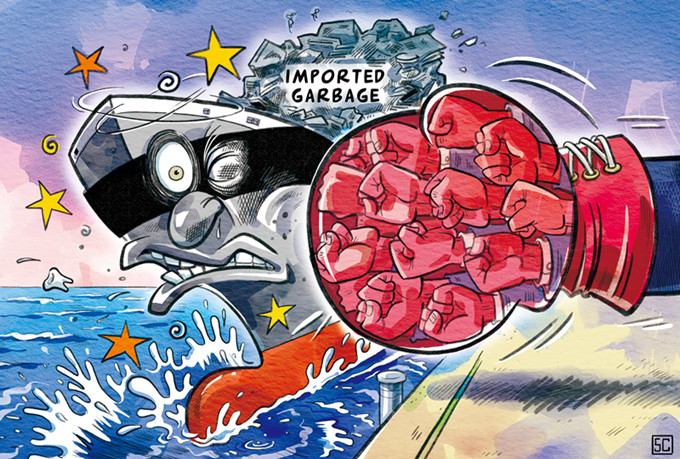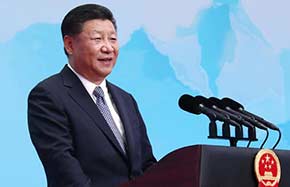Pragmatic approach on inclusive global economic governance
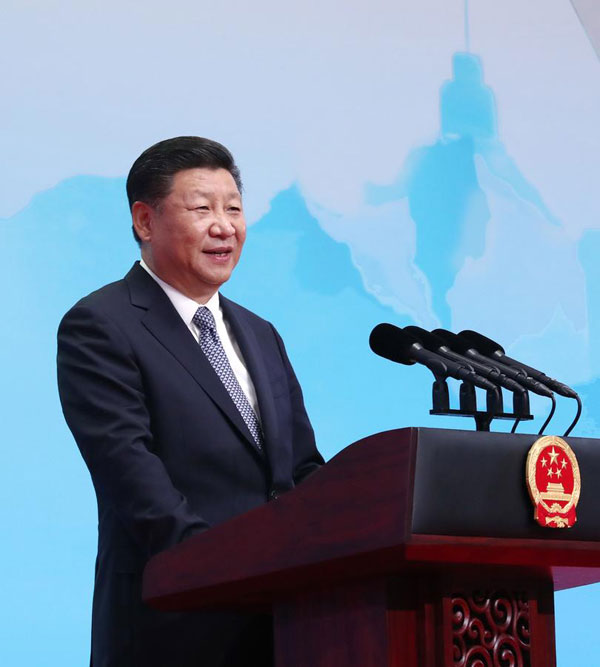 |
|
Chinese President Xi Jinping delivers a keynote speech at the opening ceremony of the BRICS Business Forum in Xiamen, Southeast China's Fujian province, Sept 3, 2017. [Photo/Xinhua] |
The 2017 BRICS summit is historically significant comparatively in the previous summits due to some challenges created by some western nations to halt the free flow of the wave of globalization and liberal economic system. Acknowledging this situation, President Xi said BRICS cooperation has reached a crucial stage of the development. He further highlighted in accessing the performance of BRICS cooperation, it is important to bear two things in mind – the historical course of global development and evolving international landscape; and the historical process of development of BRICS countries, both individually and collectively. The international institutions, established in the post WWII scenario, have failed to resolve the major challenges the world is facing. They further support to promote western supremacy and dominant roles which are halting the significant contributions of the developing world. Instead the BRICS community, which formally launched in 2006, tries to provide alternative global order based on inclusive growth, equality, peace, harmony and a win-win situation. In his significant speech, President Xi said the law of the jungle, where the strong prey on the weak, and the zero-sum game are rejected, and peace, development and a win-win cooperation have become the shared aspiration of all people. The BRICS summit is now also a very comprehensive forum for world leaders to discuss issues of common concern, build consensus and raise policy suggestions.
The term "BRIC", first coined by Goldman Saches economist Jim O'Neill in 2001, refers to Brazil, Russia, India and China. BRIC established in 2006. South Africa joined in 2010 and the acronym was changed to BRICS. According to the report of Goldman Saches, BRICS have huge potential to become dominant economies by the year 2050. These five countries cover 30 percent of the world land coverage and 40 percent of the population, with a combined GDP of $25 trillion, and also are fastest growing emerging markets. Understanding the strength and future potentiality of the BRICS, President Xi said to promote the "BRICS Plus" approach to build an open and diversified network of development partners.
In his speech, President Xi also mentioned the domestic political scenario and its historical development. He said under the leadership of the Communist Party of China (CPC), Chinese people have successfully embarked on a path of socialism, with distinctive Chinese features in close to 40 years of reform and opening up. President Xi said it was very sunshine that since the reform and opening up of 1978, China has achieved prudent domestic and global strengths in multiple spheres. With a very pragmatic policy, visions and approaches of the CPC leadership, China has become a champion in global spheres. Now, "Chinese solution" becomes the optimist view to address the present pessimistic world scenario.
Stakes in the international arena of the BRICS nations is increasing from UN system to other international financial institutions. Its stand and voice on issues – such as economic financial issues, trade, energy, cyber security, climate change and other important issues – are taking strong support from the large numbers of the masses. Some developing countries in the 1970's tried to make the international system more cooperative and inclusive; however, failed due to their domestic weakness and strong protests of some powerful nations. But now BRICS nations in terms of political, economic, military and world masses support are in the strong conditions. Since 2008 and particularly from 2017, protectionism and anti-globalization tendency in America and some European countries try to bar the free flow of global development and liberalization of the world economic system. America's withdraw from the TPP and Paris climate deal shocked the world on taking a liberal approach on globalization. No doubt the world is now in the historically transition phase. Old powers try to retain their dominant order showing unnecessary tittering and hurdles. New grouping of the BRICS, on another hand, has succeeded to gain huge popularity and support in the international spheres. Western media has also showed strong concern on the BRICS summit amid growing tensions in their domestic spheres.
To address the optimism of the world people, President Xi said the development of the BRICS has delivered tangible benefits to more than 3 billion people, and its cooperation has gained growing appreciation and endorsement, as well as had become a positive energy in the international community. Now, the world has entered into the new era with the contributing role initiated by BRICS nations. To end the existing western dominant, discriminatory and biased international system, BRICS nations should harness their partnership and cooperation. Their collective efforts not only benefits the billions of people but also supports to establish new global order based on peace, harmony, prosperity and win-win situation. President Xi's pragmatic speech in the Xiamen Summit gives the glimpse of hyper optimism for better world and to achieve common goal of global community. Now the world is watching for the power and capability of BRICS nations to implement promised commitment and declaration through the summit. Peace and prosperity of the world will be depending on the constructive activism of the BRICS nations in collective, dynamic and systemic manners.
Buddhi Prasad Sharma is a PhD Candidate at Communication University of China.







